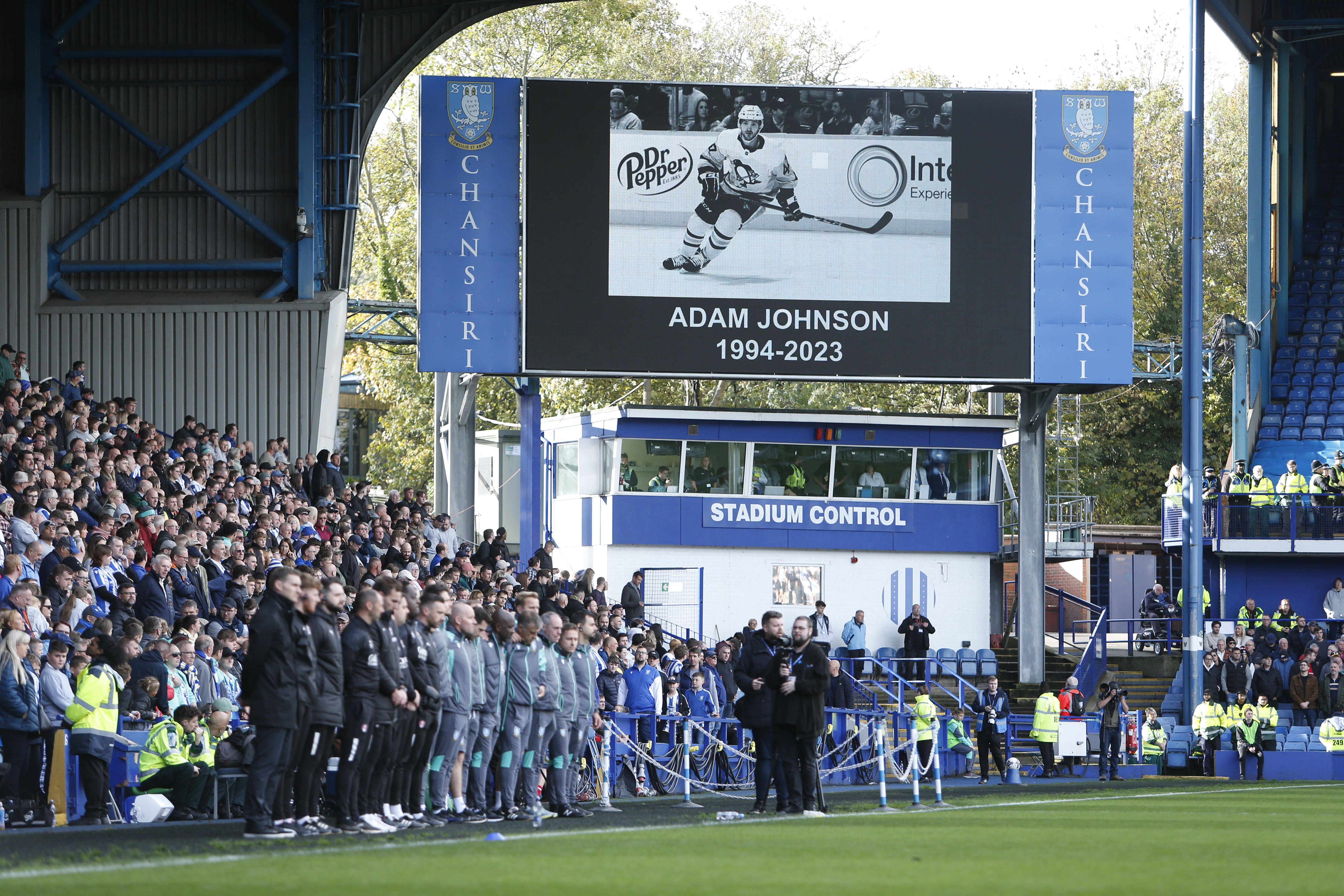Teammates may struggle to get back on ice after player’s death – psychologist
Adam Johnson of the Nottingham Panthers died following a collision during a game on Saturday.

Your support helps us to tell the story
From reproductive rights to climate change to Big Tech, The Independent is on the ground when the story is developing. Whether it's investigating the financials of Elon Musk's pro-Trump PAC or producing our latest documentary, 'The A Word', which shines a light on the American women fighting for reproductive rights, we know how important it is to parse out the facts from the messaging.
At such a critical moment in US history, we need reporters on the ground. Your donation allows us to keep sending journalists to speak to both sides of the story.
The Independent is trusted by Americans across the entire political spectrum. And unlike many other quality news outlets, we choose not to lock Americans out of our reporting and analysis with paywalls. We believe quality journalism should be available to everyone, paid for by those who can afford it.
Your support makes all the difference.Teammates and opponents may struggle to get on the ice again after the death of Nottingham Panthers player Adam Johnson during a match at the weekend, a sports psychologist has said.
Colleagues may honour the 29-year-old American’s memory by wearing neck guards following the incident during his team’s visit to the Sheffield Steelers on Saturday night, a former player and commentator has said.
An inquest is due to open on Friday into the death of the player, who was struck in the neck by an opponent’s skate.
About 8,000 fans watched in horror as attempts were made to save Johnson’s life as he lay on the ice at Sheffield’s Utilita Arena, shielded by fellow players.
Coroner’s officers confirmed that the inquest into his death would be opened at the Medico-Legal Centre in Sheffield on Friday at 9am.
South Yorkshire Police confirmed it was investigating the incident but said the inquiry would “take some time”.
Johnson’s team described the incident as a “freak accident” on Sunday when they confirmed that the popular Minnesota-born player had died.
The club has shared sources of support for fans who witnessed the tragedy.
Sports psychologist Dr Misia Gervis, who has worked with the Lionesses footballers, said players, coaches and fans who saw the incident will have suffered trauma.
She said some players might struggle to get out on the ice again, but voiced concerns that a macho culture within the game could stop people getting the support they needed.
The Brunel University expert said: “You don’t know how this traumatic event is going to impact on different individuals, it could be that some people say ‘I cannot step into the arena any more’.”
She added: “There’s some psychological work to be done for everyone, the players, the referees, the coaches and there might be fans who were traumatised by this event.
“The reaches of this experience can be far and wide and that might not be obvious.”
She encouraged those involved to ensure they had a safe space to speak about what they had witnessed.
Former player and Sky Sports commentator Nick Rothwell, who grew up in Canada, also spoke about a macho culture in ice hockey and said it had been passed down from the tough prairie farmers who went on to become some of the greatest names in the sport.
He described the dangers of the game, saying: “You have players skating at 15mph to 20mph, sharp blades, players carrying a lethal weapon, hitting a frozen piece of vulcanised rubber at 100mph and boards that do not bend.”
Against that background, players dealt with cuts, broken bones, torn ligaments and teeth being knocked out, he said, and were strongly encouraged to play on sometimes through severe injury.
Earlier this year, National Hockey League (NHL) star Morgan Barron needed 75 stitches when a blade cut his face, only for him to return to the action later in the game.
Rothwell said: “You don’t want to let your team down, you don’t want to miss a shift.”
That physical toughness could make players, regarded by fans as warriors, think they do not need mental support, he said.
Rothwell, who works with Dr Gervis at Re-Tribe- which looks to change corporate and sport cultures – said he believed more players would wear neck guards following the tragedy.
He said: “I think a lot of guys will wear one to honour Adam.
“They will feel like they have lost a brother, so what can they do?
“They can wear a neck guard and it is nothing to be ashamed of.”
Rothwell, who played for the Sheffield Steelers, said he thought the clubs who were the fiercest rivals in UK ice hockey might now come together.
“I think this rivalry will now change,” he said.
“I think this will unite them in a way they never thought before.”
On Wednesday, the Panthers issued an invitation to fans of all clubs to attend Nottingham’s Motorpoint Arena on November 4 to celebrate the former NHL player.
This venue has been the focus of fans’ outpouring of shock and emotion since the tragedy at the weekend.
The Panthers have also announced the creation of an official fundraising page to raise money for the Love For Hibbing And Hockey Memorial Fund – established in Johnson’s memory.